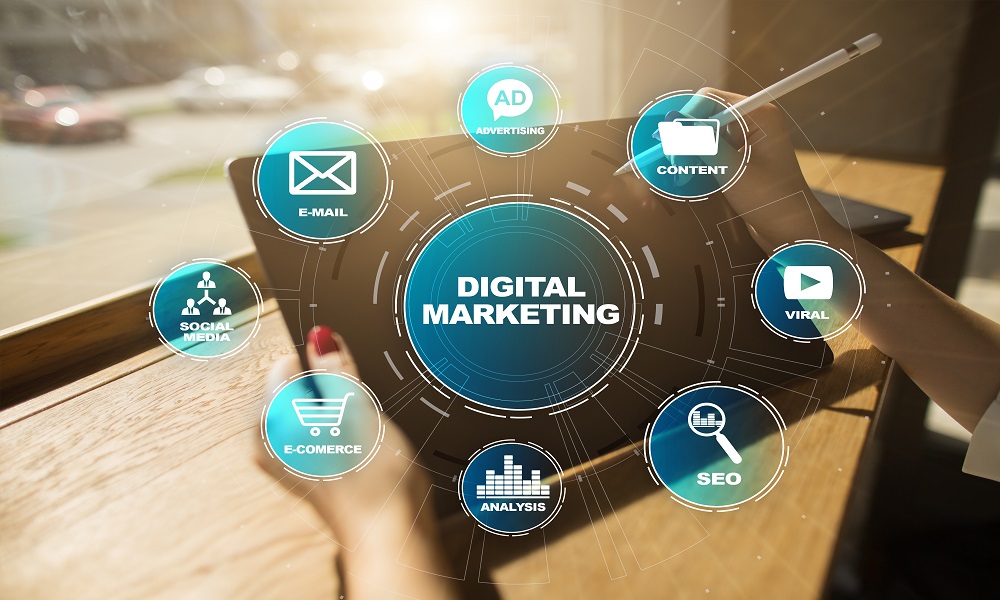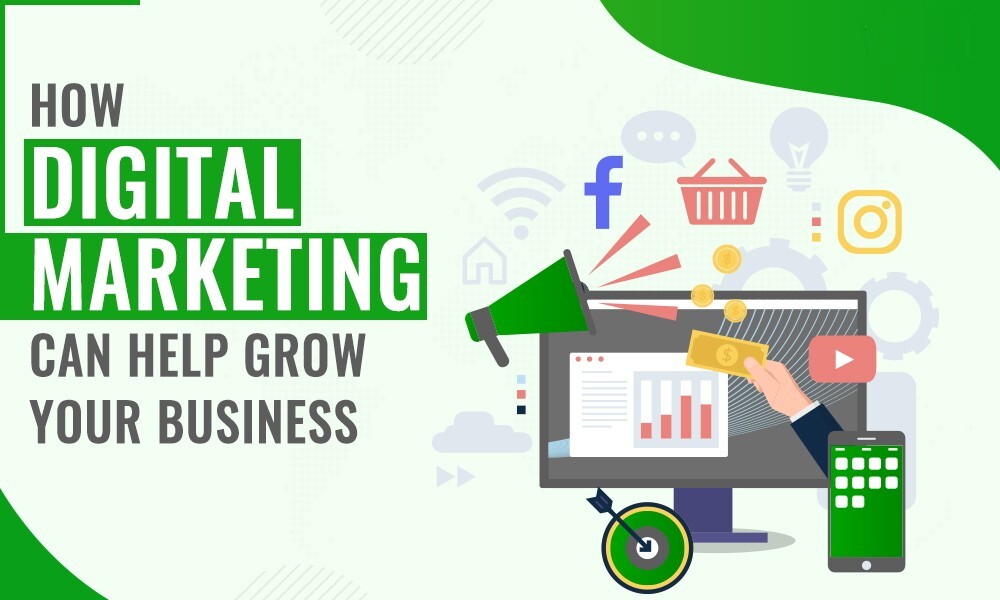In today’s fast-paced, internet-driven world, businesses rely on digital marketing agencies to build and maintain their online presence. But how exactly does a digital marketing agency work? In this blog post, we’ll break down the services, strategies, tools, and processes these agencies use to help businesses succeed in the digital space.
1. What is a Digital Marketing Agency?
A digital marketing agency is a business that helps companies build their online presence and achieve marketing goals through various digital strategies. These agencies specialize in using the internet and digital platforms to create tailored marketing campaigns that reach the right audience at the right time. Whether it’s improving brand visibility or driving conversions, digital marketing agencies bring together expertise and technology to deliver results.

2. Understanding the Core Functions of a Digital Marketing Agency
The main functions of a digital marketing agency revolve around crafting, implementing, and managing digital marketing campaigns. These campaigns aim to enhance brand awareness, engage target audiences, and drive measurable results such as lead generation, sales, or website traffic. Agencies often work as an extension of a company’s in-house team, providing specialized knowledge and resources that businesses may not have internally.
3. Services Offered by a Digital Marketing Agency
Digital marketing agencies offer a wide range of services tailored to meet the unique needs of each business. Common services include:
- Search Engine Optimization (SEO): Improving website rankings on search engines to attract organic traffic.
- Content Marketing: Creating and distributing valuable content to engage and educate target audiences.
- Social Media Marketing: Managing and promoting content on platforms like Facebook, Instagram, and LinkedIn.
- Pay-Per-Click (PPC) Advertising: Running paid ad campaigns on search engines or social media platforms.
- Email Marketing: Engaging customers through personalized email campaigns.
- Web Design and Development: Building optimized, user-friendly websites that convert visitors into customers.
Each of these services is designed to work together, helping businesses grow their presence and achieve their goals.
4. How Digital Marketing Agencies Develop a Strategy
The foundation of any digital marketing campaign starts with a clear strategy. Digital marketing agencies begin by understanding the client’s business, target audience, and objectives. This process typically includes:
- Research and Analysis: Agencies conduct in-depth market research to analyze competitors, identify trends, and define the target audience.
- Goal Setting: Defining measurable goals such as increasing website traffic, generating leads, or boosting online sales.
- Strategy Development: Crafting a comprehensive plan that outlines the channels, tactics, and content that will be used to achieve the goals.
Once the strategy is in place, agencies implement and manage campaigns, constantly optimizing them for better performance.
5. Tools and Technologies Used by Digital Marketing Agencies
To effectively manage and optimize campaigns, digital marketing agencies rely on a variety of tools and technologies. These include:
- Google Analytics: For tracking website traffic and user behavior.
- SEO Tools (e.g., SEMrush, Ahrefs): To monitor search engine rankings, keyword performance, and competitors.
- Content Management Systems (CMS): For managing and publishing website content.
- Marketing Automation Tools (e.g., HubSpot): For automating email marketing, lead nurturing, and customer segmentation.
- Social Media Management Tools (e.g., Hootsuite): For scheduling and monitoring social media posts and engagement.
These tools help agencies analyze data, measure campaign success, and adjust strategies to improve outcomes.
6. Role of SEO in Digital Marketing Agency Operations
Search Engine Optimization (SEO) is one of the core services provided by digital marketing agencies. SEO focuses on improving a website’s ranking on search engines like Google, which is crucial for driving organic (unpaid) traffic. Agencies use SEO techniques such as:
- On-page optimization: Improving website content, keywords, meta tags, and internal linking.
- Off-page optimization: Building high-quality backlinks to enhance domain authority.
- Technical SEO: Ensuring that a website is technically sound with fast loading speeds, mobile-friendliness, and proper indexing.
By optimizing a website’s visibility on search engines, SEO helps businesses attract more visitors and convert them into customers.
7. The Importance of Content Marketing in Digital Campaigns
Content marketing is at the heart of many digital marketing campaigns. Digital marketing agencies focus on creating engaging, informative content that resonates with the target audience. This content can take many forms, including blog posts, videos, infographics, and eBooks. Content marketing serves several purposes:
- Building Trust: High-quality content establishes a brand as an authority in its industry.
- Driving Traffic: Optimized content helps improve search engine rankings and attracts more visitors.
- Nurturing Leads: Content like webinars, guides, and case studies can educate prospects and move them down the sales funnel.
Effective content marketing strategies build long-term relationships with customers by delivering value at every touchpoint.

8. Social Media Marketing: Amplifying Brand Presence
Social media platforms like Facebook, Instagram, LinkedIn, and Twitter are essential for digital marketing. Agencies use social media marketing to engage target audiences, increase brand awareness, and drive traffic to websites. Social media campaigns may include:
- Organic Content: Creating regular posts that build a community around the brand.
- Paid Advertising: Running highly targeted ads to reach specific audiences based on interests, demographics, and behavior.
- Influencer Marketing: Partnering with influencers to promote products and services to their followers.
Social media marketing allows businesses to connect directly with their customers, offering opportunities for both immediate sales and long-term loyalty.
9. How Agencies Utilize Pay-Per-Click (PPC) Advertising
Pay-per-click (PPC) advertising is an essential service that digital marketing agencies use to drive immediate results. PPC involves placing ads on platforms like Google Ads or social media, where businesses only pay when someone clicks on the ad. PPC campaigns offer:
- Instant Visibility: PPC ensures that businesses appear at the top of search results.
- Targeted Reach: Ads can be shown to users based on their search terms, demographics, and online behavior.
- Measurable Results: Agencies can track every click, conversion, and cost, allowing for detailed reporting and optimization.
By leveraging PPC, businesses can boost traffic and generate leads almost instantly.
10. Tracking and Reporting: Measuring Success in Digital Marketing
A digital marketing agency continuously monitors campaign performance to ensure that goals are being met. Through tracking tools and analytics, agencies measure key performance indicators (KPIs) like traffic, conversions, and ROI. Regular reporting allows clients to see how their campaigns are performing and enables the agency to make data-driven decisions for future strategies.
11. Collaboration Between Clients and Digital Marketing Agencies
Successful digital marketing campaigns depend on close collaboration between the client and the agency. Regular meetings, updates, and feedback sessions ensure that the agency understands the client’s goals and can adjust strategies as needed. Open communication also helps agencies stay aligned with the brand’s voice, values, and objectives.
12. The Benefits of Hiring a Digital Marketing Agency
Hiring a digital marketing agency offers several benefits to businesses:
- Expertise: Agencies have specialized teams with in-depth knowledge of various digital marketing techniques.
- Efficiency: Agencies handle time-consuming tasks like content creation, analytics, and ad management, allowing businesses to focus on core operations.
- Scalability: As businesses grow, agencies can scale their services to meet increasing demand.
- Better ROI: With access to advanced tools, technologies, and expertise, agencies can often achieve better results and higher returns on investment than in-house teams.



